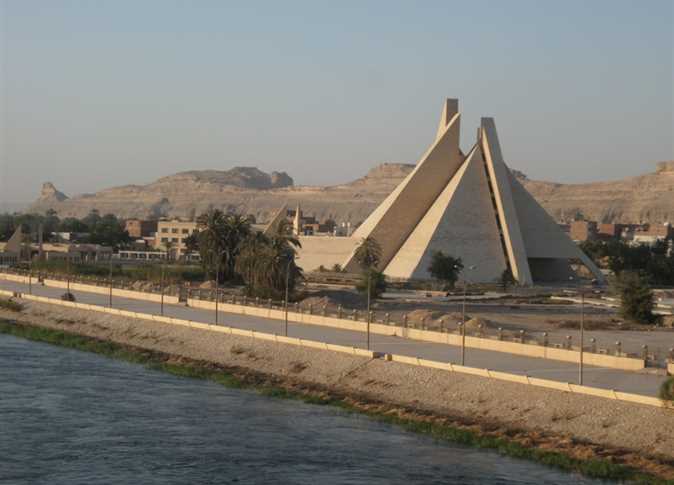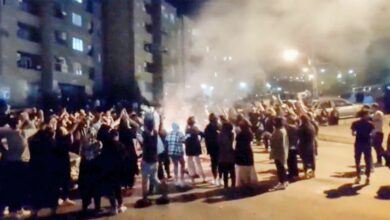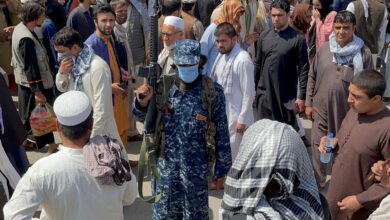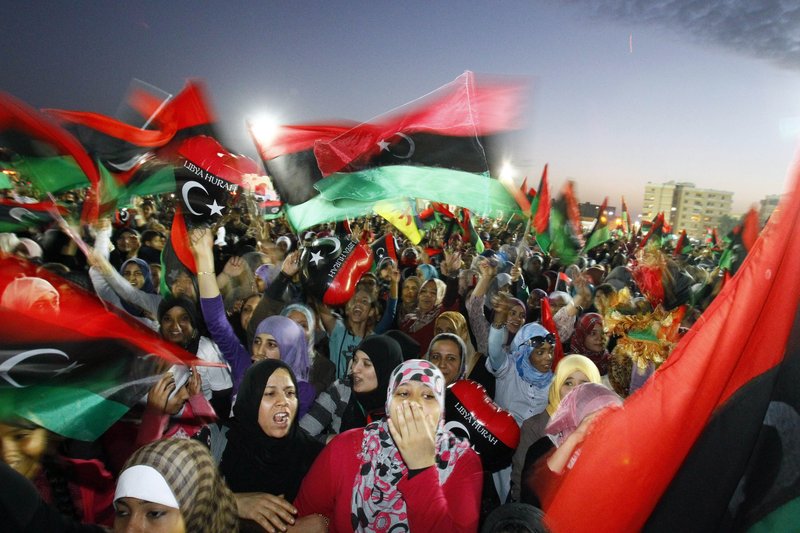London — There are more than a few theories circulating about the root of Egypt’s revolution: that is was an Islamist revolution or that it is in danger of becoming one, that it was instigated by social media such as Facebook, or that it was a military coup, among others. In London on Thursday evening, Egyptian and Egyptian-British activists and commentators did their best to debunk these myths.
“It was truly a popular revolution so please try to spread this,” insisted activist Salma Said, frustrated with continued questions about the Muslim Brotherhood and social media.
“Protest, technology and the end of fear” was an event that had people queuing around the block for a chance to hear first-hand accounts of Egypt’s revolution. Frontline Club and BBC Arabic hosted the public forum and guests included filmmakers, activists, bloggers, academics and journalists.
One of the main topics discussed was the role that technology played in the revolution, and in a nod to social networking, a Twitter hashtag (#flcbbca) was created for the event and three huge screens behind the panelists displayed its Twitter page.
Although the move seemed at first to belabor the point, it was an interesting experiment in layering technology over live discussion. It served to expand the parameters of debate–inviting the rest of the world to join in through Twitter’s online community and also adding a further dimension of participation for those present. The words of the speakers were commented on, quoted and argued online behind them, and people followed the debate from far and added their opinions. Even after the event concluded, the debate rolled on into the night.
The evening’s discussions were condensed into quotes and important points that scrolled down behind the speakers, a striking contrast to their animated arguments about the causes of revolution and the how best to steer Egypt into a new era of democracy and justice.
Despite this display of new media, which blurred the increasingly overlapping lines between the virtual and the real, one of the few things the guests agreed on was that that the role of social media has been overstated—many called the idea of a Facebook or a Twitter revolution a myth. Activist Manal Hassan called social media “just a tool”–as were the clubs, sticks and words that people fought with in the streets.
As if to underline this point, blogger Alaa Abd al-Fattah, who had spoken on the first panel, tweeted during the second half that: “I guess the audience could tell we didn't really want to talk about media and tech, rather we wanted to talk revolutions.”
His tweet appeared on the screens at the back of the room, and as it was re-tweeted again and again it kept resurfacing.
Abd al-Fattah determinedly pointed to incidents over the last few years, from the torture of micro bus driver Emad al-Kabeer to the death of Khalid Said, that helped lay the groundwork for the removal of President Hosni Mubarak. This provided important context for Egypt’s revolution that is often lacking from revolution debates, and also gave examples of technology facilitating, but not instigating, resistance.
These tools have linked activists across the region and the world, and there was talk of a new wave Pan-Arabism, a revitalized and digitized version of the 1960s nationalism. Abd al-Fattah however, disputes that it is anything new. The Arab World has always been closely tied and so “when it stops being about leaders and governments and one party systems, we discover a very strong cultural and historical connection and a sense of a shared future.”
BBC Radio 4’s Paddy O’Connell quipped that such a movement could be called “Cyber-Pan-Arabism”, referring to the way in which Arab activists have been connected through technologies which have also enabled them to get their voices into traditional media internationally. Sam Farah, BBC Arabic presenter of Nuqtat Hiwar (Talking Point), explained that as people blogged about their experiences they were picked up by TV stations and so “old media had a role to play in bringing new media to a wider audience.”
Linking different revolutions and protest movements inspires and emboldens them as people are strengthened by victories against oppression elsewhere. While the foundation of Egypt’s revolution was laid in Egypt, Tunisia was an obvious source of inspiration.
Filmmaker Khalid Abdalla said “the most important thing that Egypt can do is succeed,” as this will push other pro-democracy movements forward.
Media freedom was another hot topic, and Abd al-Fattah explained that there are now fewer restrictions and the only remaining taboo is the army, “but we are working on that” he said with a smile.
Filmmaker Omar Hamilton said “there is a lot to be optimistic about in the behavior of the army,” pointing to military conduct during the March constitutional referendum and adding that there is “a widely held belief that the army is not interested in power.”
Salma Said did not dispute this sentiment, but is nonetheless worried, as “the army does not necessarily want to stay in power, but they want the system not to change radically.”
Both Said and Abdalla pointed to allegations of torture committed by the army since Mubarak stepped down–a subject that Abdalla has made a film about.
“We are still fighting the same fight” as when Mubarak was in power, Said said, against the prospect of rigged elections and against civilians being tried in military courts.
Meanwhile, University of Exeter lecturer in Middle East Politics Omar Ashour provided an academic framework for the debate. He said Egypt is in a “grey zone” that any democratizing country has to get through and stressing the importance of security reform, as well as stability.
Regardless of disagreements and anxieties, participants expressed an overwhelming feeling of optimism, empowerment and determination. As Abdalla said, “Tahrir unblocked an energy that is completely unstoppable and people will continue to fight for it.”




